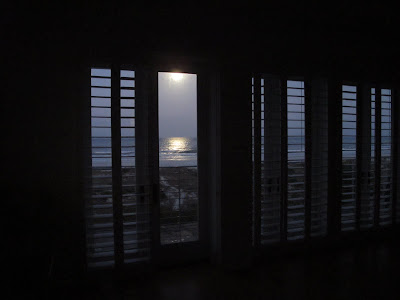
1. Table -- Mother and Daddy's drop leaf table which sat at the end of the living room in the house where I was raised. I'm fairly sure that they bought the table at the furniture store where Daddy worked in St. Louis when they got married in 1948. I wish I could remember the name of that store.
Our house did not have a dining room, so for Sunday dinner {I mean every Sunday} and for company, we opened it to its full size for dining. We set the table with good china, silver, and crystal for this weekly dinner. By the time we children were grown, almost all pieces of my mother's wedding china were chipped or broken. Mother didn't care -- it was about learning how to set a table, use and wash fine china, treat treasured guests, and celebrate the Sabbath.
2. Basket -- My childhood and long time friend Gloria sent flowers to my mother's funeral in that basket. One of the loveliest arrangements we received, she signed the card, "I will miss 'Hazel' too." Gloria and I called our mothers by their first names behind their backs. Her mother's name was "Barbara." We didn't do it to be disrespectful -- we did it for giggles.
3. Cat -- Tallulah
4. Alphabet needlepoint in frame hanging on wall behind the table -- Cross-stitched by my sister-in-law Sally and given to me as a Christmas present, the pattern has the alphabet, four cats, and three mice on it. She chose it all to match the colors of my house. :)
5. Black and white photos in frame -- On left, taken by my Aunt Ava, sit my Aunt Eleanor, my sister, and I on a bench outside a road stop on the Blue Ridge Parkway, Virginia, 1961. On right, taken by my mother, my Aunt Harriett and I pose in front of the Little White House in Pine Mountain, Georgia, 1956.
6. Stack of old pocket Bibles -- Bottom one belonged to my grandmother and the others to my aunts. Top Bible has a wooden cover and given to me in 1960 by my Aunt Harriett; she bought it in Germany.
7. Random pottery -- Given to me by an assistant principal I worked for because I loaned her a book to read. I'm thinking she really liked the book.
8. Paperweight -- This sat on the washstand in my grandparent's house for as long as I can remember. Inside the glass on the left-- their church -- Salem Methodist in Spout Spring, Va, and on the right, the preacher. Date of both photographs on back of paperweight is now illegible.
9. Oil lamp -- This lamp was a wedding gift for my father's Aunt Josie and Uncle Gus in 1900. Some time later, they converted it to electricity.
10. Outgoing mail -- Three letters that contain a hilarious cartoon about Google addressed to my brother in Colorado, my niece and her husband in California, and my nephew in Texas. Also in the pile, a music CD [how archaic, I know] of songs I thought my friend in Florida husband would like.
11. Keen Kutter Kombination Razor Hone -- Extra Quality Simmons Hardware Co. Inc.-- Manufactured in the USA -- This tin belonged to David's granddad -- inside the tin, the "hone" is still there.
BTW: I took this picture today because I thought Tallulah looked so cute sleeping in that basket in our foyer. When I went to post it, I began to note the "items on a table " and what story they each tell.
:)





















































